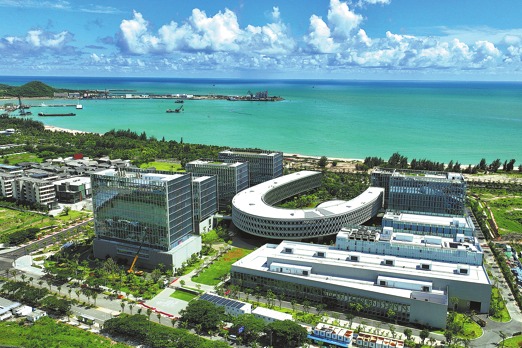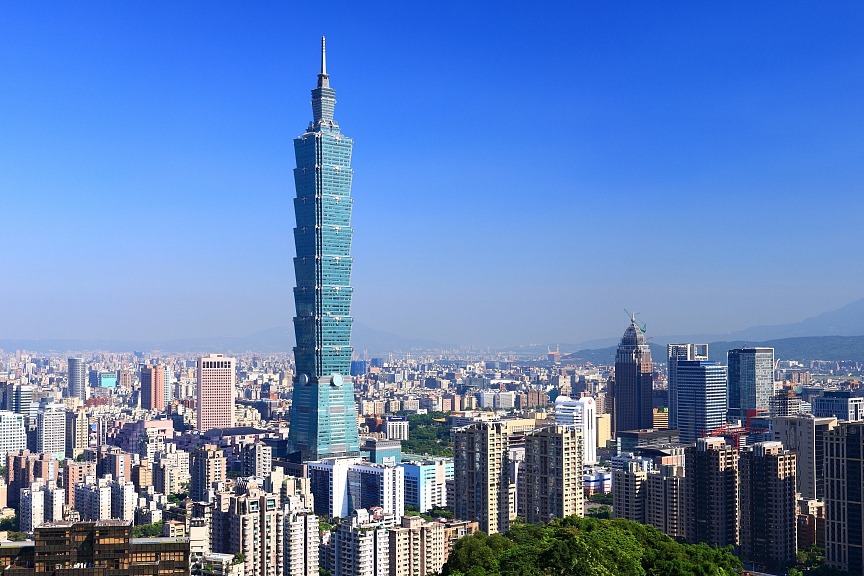FOCAC shows the way


JIN DING/CHINA DAILY
China-Africa economic ties will continue to deepen, providing a vision for sustainable collaboration and industrial transformation
As the 2024 Forum on China-Africa Cooperation summit, themed "Joining Hands to Advance Modernization and Build a High-Level China-Africa Community with a Shared Future", is being held in Beijing from Sept 4 to 6, the development of China-Africa relations has become a focal point of global attention. During this summit, leaders from both sides will renew ties and work together to outline a more multifaceted, broader, and higher-quality framework for China-Africa cooperation.
Looking back, the FOCAC has been a pivotal multilateral platform since its inception in 2000, facilitating collective dialogue between China and African countries. Through friendly exchanges and equal consultations, the forum has not only enhanced the shared interests of both sides but also ushered in a new era of collaboration among developing nations. Historical data show that China's investment in Africa continues to grow steadily, with increasingly diverse investment sectors and more varied models of bilateral economic and trade cooperation emerging. From "market-driven investments" to "emerging sector investments", an increasing number of Chinese companies are integrating into Africa, contributing to local economic growth and advancing Africa's industrialization, thereby propelling China-Africa relations into a new phase of development.
However, in today's rapidly changing world, China-Africa cooperation faces multiple challenges, including shifts in the international landscape, intensifying competition among major powers, and the growing emergence of global issues. At the same time, we also see significant opportunities, such as the deepening interdependence between China and Africa and Africa's ongoing economic transformation. How to fully leverage the complementary strengths of the two major economies has become a pressing question for Chinese and African entrepreneurs alike. A more mature, stable, and sustainable top-level framework for China-Africa cooperation will undoubtedly serve as a crucial driving force for entrepreneurs like us to further expand bilateral investments and economic and trade cooperation.
Amid these significant changes in the domestic and international environment, the strategy of Chinese companies "going global "must closely follow the development direction of the new domestic economic landscape and emerging industries. According to the latest policy directions and market demands, industries such as the digital economy, new energy and advanced manufacturing are gradually becoming new pillars of China's economy. Unlike the traditional pillar industries that were primarily State-owned, these emerging industries are largely led by private enterprises. It is worth noting that in recent years, private enterprises and the private sector have accounted for 70 percent of China's investments in Africa, playing an irreplaceable role in China-Africa economic and trade cooperation. These companies have gradually shifted from traditional trade models to more in-depth participation in local economic construction and industrialization through methods such as investing in building factories, training local employees, and operating through public-private partnership models, resulting in numerous pioneering and landmark projects.
Among many African countries, Nigeria stands out due to its large market and economic potential. China and Nigeria share deep complementarities in their economic and industrial structures. When China's manufacturing capabilities combine with Nigeria's resource and labor advantages, it inevitably stimulates local economic development, providing more job opportunities and tangible benefits to the local population. In recent years, the Lagos state government of Nigeria and China's CHOICE International Group have continuously deepened their public-private partnership, jointly launching Africa's largest e-hailing mobility platform — LagRide. This project has not only opened a new chapter for new energy transportation in Africa, but also set a new benchmark for China-Africa cooperation in green economic transformation. This initiative reflects not only the strategic necessity for Chinese enterprises to "go global", but also the concrete realization of the win-win nature of China-Africa cooperation.
In the long run, Chinese enterprises investing in Africa must first develop a strong strategic resolve and commitment to strike roots in Africa, continuously strengthening their international perspectives and innovating their business models. By fostering cultural recognition, companies can drive the localization of Chinese brands, emphasizing the improvement of product quality and service standards to win market and consumer trust through a good reputation. At the same time, in the face of new technologies and the evolving economic environment, Chinese companies must adhere to a long-term strategy of sustainable development, coordinating with local communities, the local economy and the local environment. This involves focusing on ecological protection and community relations to ensure the long-term stability and operation of projects, achieving both economic and social benefits.
The FOCAC Beijing summit will provide us with a valuable opportunity for exchange and learning. China's private enterprises will play an even more active role in Africa's industrialization process. We will continue to advance China-Africa economic and trade cooperation, assisting in industrial upgrading and technology transfer, and contributing Chinese wisdom and solutions to Africa's economic development.
The author is vice-president of China-Africa Business Council and chairman of CIG Motors. The author contributed this article to China Watch, a think tank powered by China Daily. The views do not necessarily reflect those of China Daily.
Contact the editor at editor@chinawatch.cn.


































